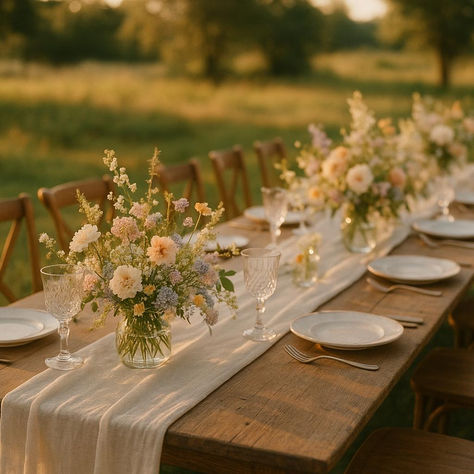Top Questions About On-Site Wedding Accommodations
- Colin

- Feb 17, 2025
- 6 min read
Updated: Mar 20, 2025
- Convenience: Guests can stay at the venue, eliminating transportation hassles and safety concerns after the reception.
- Cost Savings: Many venues offer packages that combine lodging and event spaces.
- Flexibility: Perfect for multi-day events like welcome parties, pre-wedding prep, and post-wedding brunches.
- Capacity: On-site lodging typically accommodates 20-50% of guests, with various options like lodges, cabins, and even luxury tents.
- Budget Tips: Book during off-peak seasons, negotiate room blocks, and plan for extra costs like service fees and deposits.
Key Features to Look For:
- Amenities like Wi-Fi, linens, and toiletries are usually included.
- Optional add-ons might include spa access, welcome drinks, or turndown service.
- Check stay requirements, cancellation policies, and vendor rules before booking.
On-site accommodations simplify logistics, enhance guest experiences, and support multi-day celebrations. Dive into the full article for detailed tips on choosing the right venue, managing costs, and ensuring guest comfort.
The Kendall: Luxury Hotel Wedding Venue in the Texas Hill Country
Room Capacity and Guest Planning
Planning room accommodations effectively ensures guests remain engaged throughout the wedding weekend. Many venues can host 20-50% of attendees on-site. For example, The Creek Haus can accommodate up to 70 guests with a mix of lodging options. These choices play a key role in organizing multi-day celebrations.
Room Capacity and Sleeping Arrangements
Hill Country venues offer a variety of lodging setups to meet different guest needs:
Lodging Type | Features | Best For |
Main House/Lodge | Private rooms and bathrooms | Immediate family, couple |
Cabins/Cottages | Kitchenettes, secluded spaces | Small families, elderly guests |
Bunk Houses | Shared beds and common areas | Wedding party, younger guests |
Honeymoon Suite | Luxury amenities, privacy | Newlyweds |
Some venues even feature 15 climate-controlled luxury tents, accommodating 30-45 guests, complete with full kitchens. These options make it easier to organize pre-wedding activities and casual gatherings.
Length of Stay Rules
Hill Country venues often have minimum stay requirements for weekend weddings. Common policies include:
- Weekend Events: A 2-3 night minimum stay
- Peak Season: Longer stays may be required during spring and fall
Managing Large Group Stays
Coordinating accommodations for large groups is essential to maintaining the welcoming vibe that defines Hill Country weddings. Here are some tips:
- Pre-arrival Planning: Assign rooms based on guest relationships and provide welcome packets in advance.
- Check-in Management: Some venues use staggered check-in times to simplify arrivals across their properties.
- Special Accommodations: Pay attention to accessibility needs when assigning rooms. For example, Walden Retreats offers a luxury tent with ADA-compliant features.
Pricing and Costs
Planning for on-site wedding accommodations involves understanding the expenses involved. This helps couples stay on budget while making informed choices. Most Hill Country venues offer basic amenities with optional upgrades to enhance the experience.
What's Included in Room Rates
Hill Country venues usually provide several basics in their standard room rates:
What's Typically Covered:
- Overnight stay
- Linens and toiletries
- Wi-Fi access
- Utilities
Optional Add-ons:
- Welcome drinks ($15–$25 per guest)
- Turndown service ($10 per room)
- Spa access
Example: Sage Hill Inn & Spa adds perks like pool access and hiking trails.
Extra Costs to Plan For
In addition to the base rates, there are often extra charges that can affect the overall budget. Service fees usually range from 18–22% of the total bill, and deposits can be as high as 25–50% of the accommodation costs. Here are some potential additional expenses:
Mandatory Fees:
- Security deposits (often refundable)
- Resort or facility fees
- Service charges and gratuities
- Local and state taxes
Other Possible Costs:
- Charges for early check-in or late checkout
- Fees for room setup changes
- Costs for extra guests
- Pet accommodation fees
Tips to Save on Lodging
A little planning can go a long way in cutting accommodation costs without sacrificing comfort. Booking during the off-peak season can reduce room rates by as much as 30%. Here are a few ways to save:
- Opt for off-peak or weekday bookings to save up to 30%
- Negotiate room blocks to secure complimentary stays
- Offer tiered pricing to fit different guest budgets
Being aware of these costs makes it easier to weigh the features that matter most for guest comfort, which we'll dive into next.
Property Features and Guest Comfort
Once you've set your budget for accommodations, it's time to look at property features to ensure the venue meets your guests' needs. Many Hill Country venues offer a mix of practical amenities and wedding-focused perks. For instance, Omni Barton Creek Resort not only provides event spaces but also boasts four golf courses and spa services.
Standard Property Features
The right amenities can elevate the wedding experience for you and your guests:
Feature Category | Typical Amenities | Wedding Benefits |
Outdoor Recreation | Swimming pools, hiking trails, fire pits | Great for pre-wedding gatherings and photos |
Indoor Comfort | Wi-Fi, game rooms | Ideal for getting-ready spaces and downtime |
Wellness | Spa facilities, fitness centers | Helps with bridal prep and relaxation |
Dining | On-site restaurants, catering | Perfect for welcome dinners and brunches |
Wedding Logistics | Shuttle parking, staging areas | Smooth transitions and easy vendor setup |
Rules for Using Venue Facilities
Every venue comes with its own set of rules to ensure smooth operations and guest safety. Hill Country properties often have these common guidelines:
Time-Based Restrictions:
- Noise curfews usually begin at 10 PM or 11 PM.
- Check-in and check-out times are strictly scheduled.
- Shared amenities are available during specific hours.
Safety and Compliance:
- Alcohol consumption is limited to designated areas.
- There are often restrictions on decorations, especially open flames.
- Many venues have contingency plans for bad weather.
For example, The Creek Haus provides clear instructions for using its barn, outdoor areas, and lodging throughout the wedding weekend.
Making Guests Comfortable
A warm, welcoming environment makes all the difference for your guests.
Key Comfort Features:
- Clear signage and property maps to help guests navigate.
- Accessible rooms and pathways for those with mobility needs.
- Transportation options between different event spaces.
- Quiet zones for guests who may need a break from the festivities.
Extra Touches to Elevate the Experience:
- Welcome bags filled with local goodies and venue details.
- Child-care services for family-friendly celebrations.
- Group activities to encourage mingling and connection.
Taking these steps not only ensures guest comfort but also sets the stage for seamless vendor coordination, which we’ll dive into next.
Working with Vendors
Once you've optimized guest comfort with property features, the next step is managing vendor coordination - an essential part of running multi-day events.
Outside Vendor Rules
At The Cedars Ranch, vendors must provide proof of insurance and signed agreements before they are allowed on-site.
Many Hill Country venues have specific policies for external vendors to ensure smooth operations. Here are some common requirements:
Requirement Type | Typical Policies |
Documentation | Proof of insurance, licenses, signed agreements |
Access Fees | Charges for using outside vendors |
Timing | Designated load-in and load-out schedules |
Equipment | Restrictions on certain types of equipment |
In-House Vendor Requirements
For certain services, such as catering, most Hill Country venues require using their in-house teams. These policies often include:
- Exclusive use of venue catering services
- Coordination with on-site event management teams
- Adherence to specific setup and teardown schedules
Vendor Contract Basics
When reviewing vendor contracts, pay attention to these critical elements:
Contract Component | Key Details to Verify |
Service Timeline | Agreed setup and breakdown schedules |
Insurance | Compliance with coverage requirements |
Accommodation | Provisions for vendor meals |
Pro Tip: A final walkthrough is a great way to clarify any remaining questions about property rules and expectations.
Conclusion: Selecting Your Venue's Lodging
Choosing the right lodging for your venue means balancing several key factors, from capacity needs to vendor coordination. Look for venues offering a range of lodging options that align with your guests' preferences and requirements.
When comparing venues, consider using a detailed matrix to weigh critical factors, such as:
Evaluation Criteria | What to Check |
Room Options | Availability of suites, standard rooms, and unique accommodations |
Pricing Details | Group discounts, minimum stay rules, and included perks |
Booking Policies | Cancellation terms, deposit guidelines, and block booking arrangements |
Review these alongside vendor agreements and guest comfort features to ensure smooth planning. Amenities that align with your wedding style and needs will play a big role in creating a seamless experience.
Always double-check contracts and read guest reviews to confirm the venue meets your expectations. By thoroughly assessing your options, you'll secure lodging that supports both your event logistics and your guests' comfort throughout the celebration.















Comments